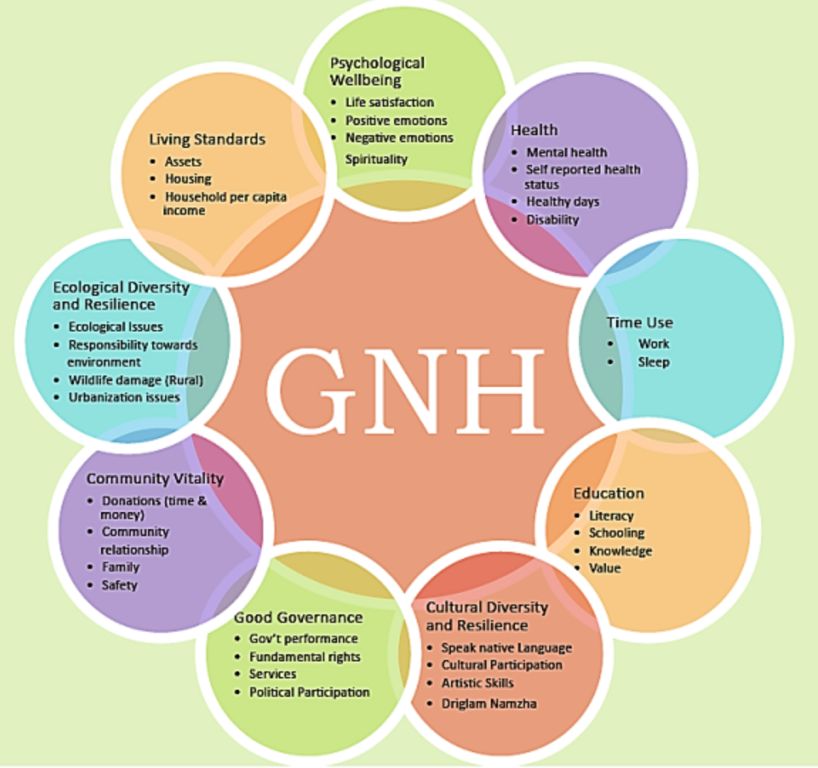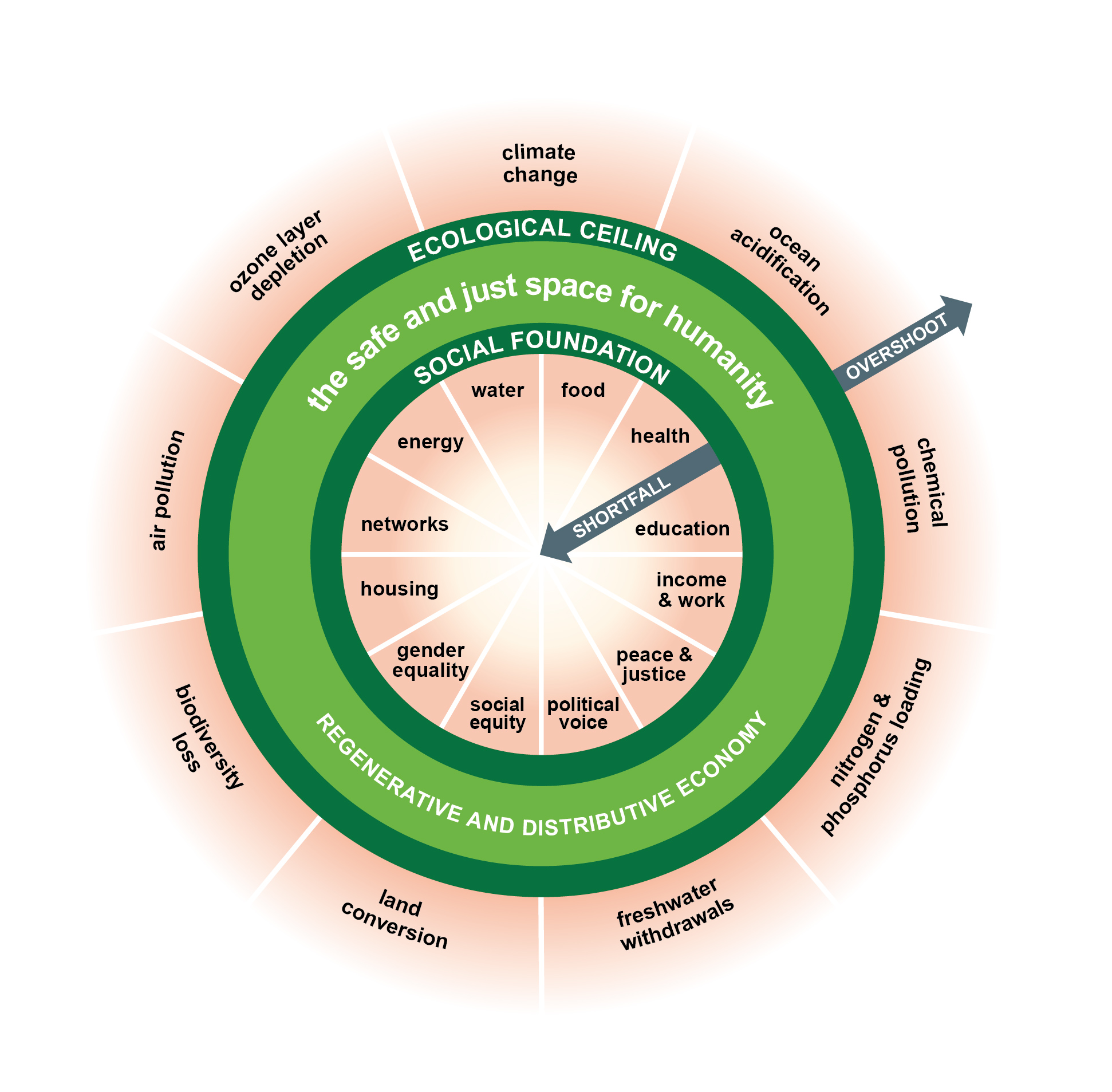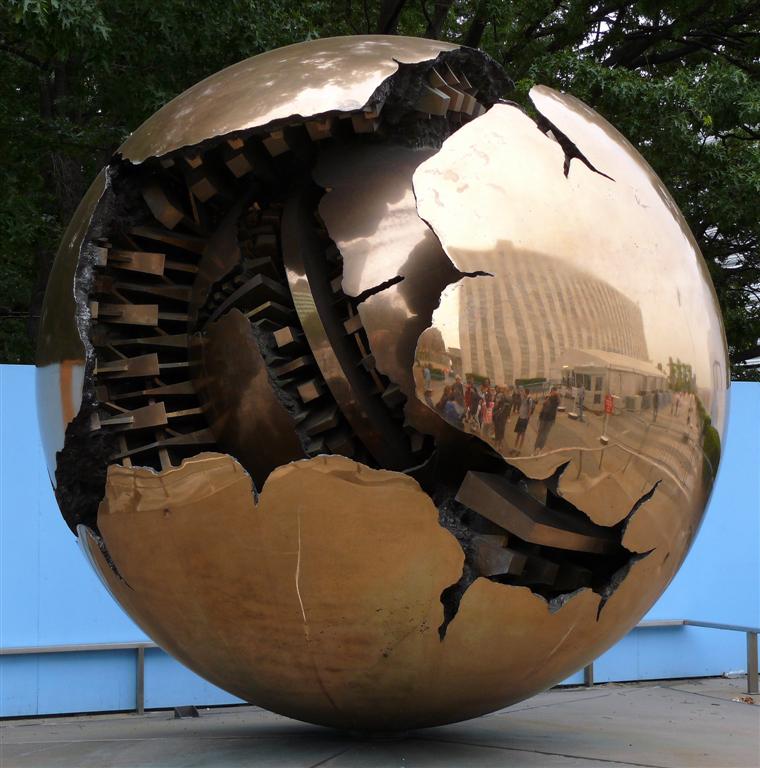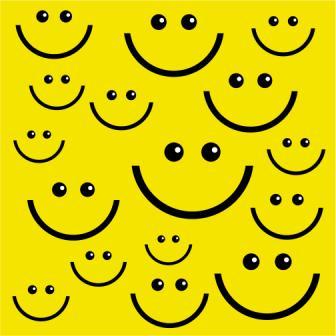Contact Bruce
About
PWP
Links
Photo Credits:-
Smile Balls
(Grafixar, Morguefile)
The
9 Domains of GNH
(GNH
USA; fair use, educational)
Smiles
(Prawny, Morguefile)
Mother Earth
(Comfreak,
Pixabay)
Classic Doughnut
(Wikimedia
Commons)
Principles of Degrowth (Source: The political economy of degrowth
by Timothée
Parrique, 2019; fair use, educational)
Gold
Globe
(hacaspi, Morguefile)
|
 Money System Money System
Introduction
What
an evil money system
we have where “...economic interests trump human rights in
most instances.” (BBC,
1m54s, posted and accessed 4 April 2019)
So, this page looks
at some alternatives to the current money systems of capitalism and communism.
Until we can do away with money.
The conclusion is that the new money system be an integrated combination of approaches described herein, including: Wellbeing Economy; Doughnut Economics (living within planetary boundaries); UBI (Universal Basic Income); UBS (Universal Basic Services); Degrowth; PSPL (Private Sufficiency and Public Luxury); and more.
Wellbeing Economy/GNH vs. GDP
- "The
great breakthrough of the twenty first century will be to begin to
assess
success and failure in life other than merely through financial
indicators."
(Alain de Botton)
- "We
must rapidly begin
the shift from a thing-oriented society to a person-oriented society. When
machines and
computers, profit motives and property rights, are considered more
important
than people, the giant triplets of racism, extreme materialism, and
militarism
are incapable of being conquered." (Martin Luther King Jr. 1967
speech, cited here,
accessed 16 October 2012)
- "The
solution to the climate crisis is not going to be achieved with more
green capitalism and more global carbon markets. The solution is to
change the model of civilization and move towards an alternative model
to capitalism, the concept of living well together in harmony with
Mother Earth." (Luis Arce, President of Bolivia &
Economist, COP26, cited at Common
Dreams, posted/accessed 2 November 2021; watch here)
- Universal
Basic Income (UBI)
is required - see here
and here.
This can reduce or eradicate poverty and slavery. It supports real
freedom and the power to say "no".
Also see here,
here
and below...
- Subsistence
Economy + UBI. Subsistence is supporting
oneself at a minimal
level. Here are some ideas:-
- Peter
Taylor, an environmentalist, suggests a home with a
plot and a basic income for
those who farm that plot for themselves and the local
community. (Based on a 2018 conversation; idea
may not be accurately conveyed; also see here)
- Our
lifestyles have detached us from nature and
also our natural state of being. Many people yearn to live a simple
life on
their own smallholding. This is a desire to regain our natural state
denied to
us by historic acts of land dispossession. The past confiscatory
actions of the
powerful have driven the human race out of necessity to find and invent
other
ways of providing a livelihood - much of it incompatible with our true
natures.
It is also the fundamental cause of our current malaise in terms of
economy,
climate and biodiversity. We now have mass indoctrination by the
propaganda of
society's leeches to make us think that all economic activity is
socially profitable.
So much of what we make and do is fruitless, or even worse, harmful.
Money
based on negative, adverse and anti-social production is just as
worthless as
the activities themselves. Return the land to the people and many will
choose
again a healthy, environment-friendly "subsistence" economy. (oneness, posted
22 November 2019, accessed
23 October 2020)
- Also
see 'Private Sufficiency, Public Luxury' below.
- "To
have enough is
happiness, to have more than enough is harmful. That is true of all
things, but
especially of money." (Lao-Tse)
- Love,
Love, Love - NOT growth, growth, growth! Degrowth
is the Love we need.

The 9 Domains of GNH [click to
enlarge]
- Food
- As a basic human right, everyone deserves healthy, organic food. Also
see 'Universal Basic Services'.
- Housing
- Everyone has a home, supplied with clean water and sanitation. Also see 'Universal Basic Services'.
- Energy
- The Sun
gives its energy for free and humans make sure solar energy is given
free to everyone. Also see 'Universal Basic Services'.
- Equality - The
superrich and corporations need to be taxed heavily. This will fund UBI and UBS.
Incomes need to be capped. The difference between highest and lowest
incomes needs to be minimised. We need a Great
Redistribution. And so much more...
- Drudgery
- Thank you for robots!
- Happiness
- In terms of money, it has been found that a person living in the Rich
World needs no more than about $70,000 or £55,000 per year to
be
happy (see here).
Anything more does not bring extra happiness. Perhaps we need to cap
anyone's income at this amount and redistribute the rest?...
- Universal
Basic Income - See above
and consider:-
'A
basic income (also known as a citizen's income) gives everyone, rich
and poor,
without means-testing or conditions, a guaranteed sum every week. It
replaces
some but not all benefits (there would, for instance, be extra payments
for
pensioners and people with disabilities). It banishes the fear and
insecurity
now stalking the poorer half of the population. Economic survival
becomes a
right, not a privilege.
A basic income removes the stigma of benefits while
also breaking open what politicians call the welfare trap. Because
taking work
would not reduce your entitlement to social security,
there would be no
disincentive to find a job – all the money you earn is extra
income. The poor
are not forced by desperation into the arms of unscrupulous employers:
people
will work if conditions are good and pay fair, but will refuse to be
treated
like mules. It redresses the wild imbalance in bargaining power that
the
current system exacerbates. It could do more than any other measure to
dislodge
the emotional legacy of serfdom. It would be financed by progressive
taxation...'
(George Monbiot, The Guardian,
posted 1 April 2013, accessed 9
November 2020)
'If
in the future human labour is less needed, keeping societies stitched
together
may require us to reinvent the welfare state. Not all economists think
that's
worth worrying about just yet. But those who do are reviving an idea
that dates
back to Thomas More and his 1516 book, Utopia - a universal basic
income. It
does seem utopian, in the sense of fantastically unrealistic. Could we
really
imagine a world in which everyone gets a regular cash handout, enough
to meet
their basic needs, no questions asked?
Some
evidence suggests it's worth
considering. In the 1970s, the idea was trialled in a Canadian town
called
Dauphin. For years, thousands of residents received cheques every
month. And it
turns out that guaranteeing people an income had interesting effects.
Fewer
teenagers dropped out of school. Fewer people were admitted to hospital
with
mental health problems. Hardly anyone gave up work. New trials are
under way,
to see if the same thing happens elsewhere.
It
would, of course, be
enormously
expensive. Suppose you gave every American adult, say $12,000
(£9,000) a year.
That would cost 70% of the entire federal budget. It seems impossibly
radical. But
then, impossibly radical things do sometimes happen, and quickly. In
the 1920s,
not a single US state offered old-age pensions. By 1935, Frances
Perkins had
rolled them out across the nation.'
(BBC, posted and accessed
13 November 2017)
'Some contemporary feminists argue that universal
basic
income would be a better way of compensating women for the unpaid work
they routinely perform. It would give women the economic freedom to
exit unfulfilling or abusive relationships more easily (although the
basic income touted
by supporters like Andrew Yang would need to be higher to achieve that)
and rectify some of the inequalities inherent in a capitalist system
that relies on the unpaid labor of women.'
(Sirin Kale, The
Guardian, posted 8 February 2021, accessed 10
February 2021)
- Universal Basic Services
- These are basic public services that enable survival, that need to be
provided to all by Government for free. They include: income (UBI), housing, food, water, health,
education, transport, internet, clean energy. Read more here.
- 'Private
Sufficiency, Public
Luxury' - A world where we all can access luxury, but
personally we need little. It involves the restitution [the
returning of something stolen]
of land/resources to the people (i.e. they are not owned by either
State or privately by investors), then these are managed for the good
of all by communities. We become protectors of the land. It is a way of
creating material security for all. Read/watch more via these links; also see 'Subsistence Economy
+ UBI' above.
- Mother-centred world
- The mother is the foundation of all things yet she is perhaps the
least valued thing. If we must have a money system, mothers or those
fulfilling that role (e.g. fathers, carers, extended family) need to
receive a payment for their huge contribution to society. Indeed, a UK
political party called Motherworld
suggests this sort of policy. Mothers at the centre of any system,
rather than being marginalised at the periphery. Mother Earth will then
heal... Also see here.

Wellbeing
Economy/Happiness Economics/GNH
(Gross National Happiness) etc.
GNH
and a wellbeing
economy are economic systems centralising the wellbeing of people and
nature, social justice and equity. They de-emphasise financial
indicators like GDP.
- The Happy Planet Index
(NEF) [But may not sufficiently reflect
human rights abuses].
- Happiness
economics (Wikipedia).
- The
4
Pillars of GNH (GNH Centre Bhutan).
- The 9 Domains of GNH (GNH Centre Bhutan).
- Gross
National Happiness
(GNH USA).
- Charter for
Happiness (GNH USA) [sign
it here].
- Wellbeing
Economy Alliance (WEAll) &
Wellbeing
Economy Governments (WEGo).
- GPI
[Genuine Progress Indicator] (Wikipedia).
- The
ethnic cleansing hidden behind Bhutan's happy face (Apoorva
Dutt, Firstpost, 2013) [Bhutan's
hypocrisy and brutality does not mean that we must throw the baby out
with the bathwater].
- How
to create an economy where humans flourish (BBC,
2017) [Anthropologist
Jason Hickel argues we are
'addicted' to economic growth - and it's killing us].
- How
Labour could lead the global economy out of the 20th century
(George Monbiot, The Guardian, 2017)
[Private sufficiency and public
luxury].
- Building
a wellbeing economy (Katherine Trebeck,
openDemocracy, 2019)
[Meeting the challenges of the 21st century means ending the pursuit of
perpetual growth, and building an economy that is regenerative,
collaborative and purposeful].
- Iceland
puts well-being ahead of GDP in budget (BBC, 2019)
[promoting
a "well-being" agenda with Scotland and New Zealand].
- Pandenomics:
a story of life versus growth (Professor Julia Steinberger,
openDemocracy, 2020).
- Decent
living for all does not have to cost the Earth (Leeds
University, 2020).
- We Can Use Less Energy and Still Have Good
Lives (Gizmodo,
2020).
Doughnut
Economics
"Today's economy is divisive and degenerative by
default.
Tomorrow's economy must be distributive and regenerative by design."
(Kate Raworth)
"The Doughnut of social and planetary boundaries is
a
playfully serious approach to the 21st century challenge of
how to
meet the needs of all within the means of the planet." (Kate Raworth
adaption)
- Doughnut
(economic model) (Wikipedia).
- What on Earth is
the Doughnut? (Kate Raworth).
- Doughnut Economics: 7 Ways to
Think Like a 21st Century Economist (Kate Raworth,
2017) [Book].
- Finally,
a breakthrough alternative to growth economics - the doughnut
(George
Monbiot, The Guardian, 2017) [Personally, I
prefer a solar role model
over a stodgy doughnut. But maybe it's a super-healthy doughnut! Anyway, alongside GNH, an excellent alternative
to GDP.].
- A healthy
economy should be designed to thrive, not grow (Kate Raworth
at TED, YouTube, 2018) [15m53s video that is
also here.].
- President of
Ireland backs Doughnut Economics (DEAL, 2020).
- The
planet's economist: has Kate Raworth found a model for sustainable
living? (Hettie O'Brien, The Guardian, 2023).
- ‘It feels cool to be a cog in change’: how doughnut economics is reshaping a Swedish town (Abigail Sykes, The Guardian, 2025)
[Tomelilla is one of the smallest towns in the international network of
the Doughnut Economics Action Lab, dwarfed by Barcelona, Glasgow and
Mexico City].

UBI
(Universal Basic Income) & UBS (Universal Basic Services)
"UBI is an income unconditionally granted to all
members
of a political community on an individual basis, without means test or
work requirement. It is high enough to ensure an existence that
preserves personal dignity and allows an individual active
participation in society." (UBIE
adaption)
UBS is a form of social security where all receive access to a range of
free, basic, public services, funded by the Government. (Wikipedia adaptation)
- Universal
basic income (Wikipedia).
- Universal basic services (Wikipedia).
- Citizen’s
Basic Income Trust [website
on UBI research].
- Unconditional Basic Income Europe
(UBIE).
- Utopia for Realists: The Case
for a Universal Basic Income, Open Borders, and a 15-hour Workweek
(Rutger Bregman, 2016).
- Basic
Income for All: From Desirability to Feasibility (Lansley
and Reed, 2019).
- The
Case for Universal Basic Services (Anna Coote,
New Economics
Foundation,
2020).
- One-Time
Stimulus Checks Aren’t Good Enough. We Need Universal Basic
Income.
(Nicholas Powers, Truthout, 2020) [UBI in
USA].
- The
Unheard Results of The Finnish Basic Income Experiment (Eetu
Lehto, UBIE, 2020) [improves well-being,
does not make people lazy, and more].
- Californians
on universal basic income paid off debt and got full-time jobs
(The Guardian, 2021).
- Post-Covid
Britain needs a new social guarantee (Anna Coote and Neal
Lawson, The Guardian, 2021) [Ensuring
everyone has decent public services and a guaranteed income could
transform the UK after the pandemic].
- From
basic income to inheritance for all (Thomas Piketty, 2021)
[Basic Income, Job Guarantee, Inheritance for All].
- We
want to give everyone in Britain £400 a month – no
strings attached (openDemocracy, 2021).
- In
this age of chronic uncertainty, we need a basic income (Guy
Standing, openDemocracy, 2022) [UK focus].
- The case for free, universal basic services (Aaron Bastani, TED, 2023) [19m8s video is also at YouTube].
- ‘Life-changing
impacts’: can a guaranteed income program work? (The
Guardian, 2023) [It’s
Basic is a new documentary that looks at the US program
that gave in-need participants $500 a month, no strings attached.
Trailer here.].
- Universal public services: the power of decommodifying survival (Jason Hickel, 2023).
- What
do homeless people do with cash aid? A new study found out (The
Guardian, 2023) [Unhoused people don’t waste
money on ‘temptation goods’].
- The Limits of Basic Income (Jason Hickel, Current Affairs, 2024)
[UBI on its own does not transform the capitalist system. Providing
people with cash payments has benefits, but guaranteed employment and
public services are a better option for transforming our economy. UBI
can be integrated within all this.].
- Money
for nothing: is universal basic income about to transform society?
(Donna Ferguson, The Guardian, 2024)
[UBI is gaining traction as a solution to the impact of AI and a way to
encourage more rewarding and socially valuable work].
- Could
a £2-a-day basic income be the key to protecting rainforests?
(The Guardian, 2024).
"Universal
basic income isn’t radical, poverty is." (Nina Turner,
11 July 2022 tweet)
"The concept of a guaranteed basic income might seem novel or neoteric,
but it dates back to 1795, when the American founding father Thomas
Paine
suggested a “national fund” should pay every adult
“rich or poor” a “ground rent”
of £10 a
year until the age of 50. Earth is “the common property of
the
human race”, he argued, so everyone has been collectively
dispossessed by “the introduction of the system of landed
property” and was entitled to compensation." (Donna Ferguson,
The
Guardian, posted and accessed 14 July 2024)
Degrowth
"Degrowth
is a planned
reduction of energy and resource use designed to bring the economy back
into balance with the living world in a way that reduces inequality and
improves human well-being." (Jason Hickel)
- Podcasts
& lectures on Degrowth (Complied by
Timothée Parrique) [So many!].
- Sustainable retreat (Wikipedia)
[A James Lovelock concept about the necessary global changes to human
settlement and dwelling to adapt to global warming and prevent its
expected negative consequences on humans].
- What is degrowth? (Degrowth.info, undated).
- Who Is Afraid of Degrowth? (Céline Keller, undated) [free 214 page comic].
- Life
in a 'degrowth' economy, and why you might actually enjoy it
(Samuel Alexander, The Conversation, 2014).
- On
sacrifice (Professor Julia Steinberger,
openDemocracy, 2019).
- 10
Definitions of Degrowth (compiled by Timothée
Parrique, 2020).
- How
affluent people can end their mindless overconsumption (Vox,
2020).
- Capitalism
Will Ruin the Earth by 2050, Scientists Say (Vice,
2020).
- It’s
time for a new economic system (Chris White,
Dalhousie University, 2020).
- Growth
without economic growth (European Environment
Agency, 2021).
- A
guide to degrowth: The movement prioritizing wellbeing in a bid to
avoid climate cataclysm (CNBC, 2021).
- There’s
a simple answer to climate change. But will capitalism allow it?
(Bill McGuire, Prospect, 2021).
- What Is
Degrowth? Interview with Giorgos Kallis (Dan O'Neill,
YouTube, 2021).
- The
anti-colonial politics of degrowth (Jason Hickel,
Political Geography, 2021).
- What
is ‘degrowth’ and how can it fight climate change?
(Sara Kiley Watson, Popular Science, 2021)
[The cure for a changing climate could be a stagnant economy].
- Exiting
the CEE by Reducing Consumption (Prof Julia Steinberger,
2021).
- How
to Achieve Full Decolonization (Jason Hickel,
New Internationalist, 2021)
[Enforced degrowth. Southern governments are captive to the demands of
international capital, which prevents them from meeting their
people’s real needs. Modern Monetary Theory (MMT) offers a
way
out.].
- ‘A
new way of life’: the Marxist, post-capitalist, green
manifesto captivating Japan (The
Guardian, 2022) [Kohei Saito’s popular
book Capital in the
Anthropocene advocates for degrowth and going beyond
capitalism].
- Degrowth
can work — here’s how science can help
(Hickel et al., Nature, 2022).
- EU
parliament Beyond
Growth conference Unreported/Mocked
(Prof Julia Steinberger, Twitter, 2023)
[Editors refuse any story critical of economic growth].
- Consumerism and the climate crisis threaten equitable future for humanity, report says (The Guardian, 2024) [Needed = sustainable lifestyles; radical transformation of global politics; fair distribution of resources].
- Degrowth: a new logic for the global economy (Tayyab et al., The BMJ, 2024).
"In a degrowth
world,
the great majority would be just as well off. The problem is that the
top 5% would no longer be able to exploit the majority by selling their
crap to us. Unfortunately, this 5% control our media, corporations, and
most of our governments." (JohnC, 6 August 2022 tweet)
"It’s not a case of
carrying on as ‘normal’ vs Degrowth. It’s
a case of
losing EVERYTHING vs Degrowth." (Climate Dad, adapted 16
April 2022 tweet)
Private Sufficiency and Public
Luxury (PSPL)
"Life
on Earth
depends on moderation. We need to build a world in which
growth is
unnecessary, a world of private sufficiency and public luxury." (George
Monbiot adaption)
- Public luxury for all or private luxury for some: this is the choice we face (George Monbiot, The Guardian, 2017).
- How
Labour could lead the global economy out of the 20th century
(George Monbiot, The Guardian, 2017).
- Not
capitalism, not communism: George Monbiot on why we need the commons
(We Own It, 2018) [20m28s video; there is a
1m21s excerpt here].
- For
the sake of life on Earth, we must put a limit on wealth
(George Monbiot, The Guardian, 2019)
[It’s not just the megarich: increased spending power leads
us
all to inflict environmental damage. It’s time for a radical
plan.].
- Affluence
is killing the planet, warn scientists (Julia K. Steinberger,
Manfred Lenzen & Thomas Wiedmann, The Conversation, 2020).
- Private
Sufficiency, Public Luxury: Land is the Key to the Transformation of
Society (George Monbiot, Schumacher
Center, 2020) [Transcription of a 1h53m
lecture; also available as a 48m20s audio].
- The
Guardian view on the public realm: rebuild the people's palaces
(The Guardian, 2021) [Continued underfunding
of UK's public services is undermining the social fabric of its cities
and towns].
- George
Monbiot on PSPL (Hay Festival, 2021)
[1m30s video].
- Capitalism
is killing the planet – it’s time to stop buying
into our own destruction (George Monbiot, The
Guardian, 2021) [Challenge the pursuit of wealth. Level
down, not up. Our survival depends on disobedience.].
Consumerism &
Materialism - Transform It!
- Freeganism
(Wikipedia).
- The
Gift of Death (George Monbiot, 2012).
- Neoliberalism
– the ideology at the root of all our problems
(George Monbiot, The
Guardian, 2016).
- Too
right it's Black Friday: our relentless consumption is trashing the
planet (George
Monbiot, The Guardian, 2017).
- Pope
Francis condemns world of materialism and poverty (BBC,
2018).
- Overconsumption
and the environment: should we all stop shopping? (The
Guardian, 2021)
[Over-consumption is at the root of the planet’s
environmental
crisis. One solution, proposed by author JB MacKinnon, is that we
should simply buy less. But would that really work?].
- Capitalism
is killing the planet – it’s time to stop buying
into our own destruction (George Monbiot, The
Guardian, 2021) [Challenge the pursuit of wealth. Level
down, not up. Our survival depends on disobedience.].
- Consumerism
is the path to planetary ruin, but there are other ways to live
(Prof Kate Soper, The Guardian, 2023)
[A slower paced life with less work and more community focus
– if enough people share the dream, we can make it happen].
- Human
‘behavioural crisis’ at root of climate breakdown,
say scientists (The Guardian, 2024)
[Demand for resources is the root cause, must be reduced].
Redistribution
Sharing
is usually taught to children. So why doesn't the
adult world share?
The Gift Economy of Genevieve
Vaughan
This gift economy is based on the work of Genevieve
Vaughan.
Mother Nature - that gives us all our needs - is a central
concept.
Two basic economic paradigms coexist in the world today.
- Exchange
(capitalism): giving in order to receive; self-oriented; competitive;
hierarchical. This paradigm is male, quantifiable, visible, valued.
Money is its symbol.
- Gift Giving
(indigenous): giving in order to satisfy another's needs;
other-oriented; non-competitive; nurturing. This paradigm is female,
qualitative, invisible, undervalued. Mother Nature is its symbol.
What we need to
do is validate Gift
Giving, causing a basic shift in the values by which we
direct our lives and policies. Finally, we can phase out Exchange altogether.
Other
- New
International Economic Order (Wikipedia)
[A set of proposals advocated by developing countries to end economic
colonialism and dependency through a new interdependent economy].
- The
Case for Climate Justice (Global
Justice Now) [Explores how the current money
system and
manmade climate change are interlinked. PDF comic.].
- The Real Wealth of Nations: Creating A Caring Economics (Riane Eisler, 2007) [Book].
- How
Bitcoin made right-wing conspiracy theories mainstream (Salon,
2018) [Cryptocurrency is right-wing, anti-democracy,
anti-equality, and will not fix our social problems. It is also environmentally
destructive.].
- Welby -
Taxes must rise to tackle 'unjust economy' (BBC,
2018) [Also see Tax
Justice].
- Viewpoint:
How money can make you heartless (BBC, 2019).
- How much
should bosses be paid? (BBC, 2019).
- The boss
who put everyone on 70k (BBC, 2020).
- Post-growth: the science of wellbeing within planetary boundaries (Kallis et al., The Lancet, 2025)
[The central idea of post-growth is to replace the goal of increasing
GDP with the goal of improving human wellbeing within planetary
boundaries].
- The Extinction Tariff (George Tsakraklides, 2025) [As Trump escalates tariff wars,
the real war of tariffs is taking place between parasitic humanity and
the ever-giving Earth. There can only be one winner = Earth. And it is
likely humans must repay their arrogance with their own extinction.].

|
Also see:-
No Money
Capitalism
Money articles
|
 Money
System
Money
System
 Money
System
Money
System
 Money System
Money System 

